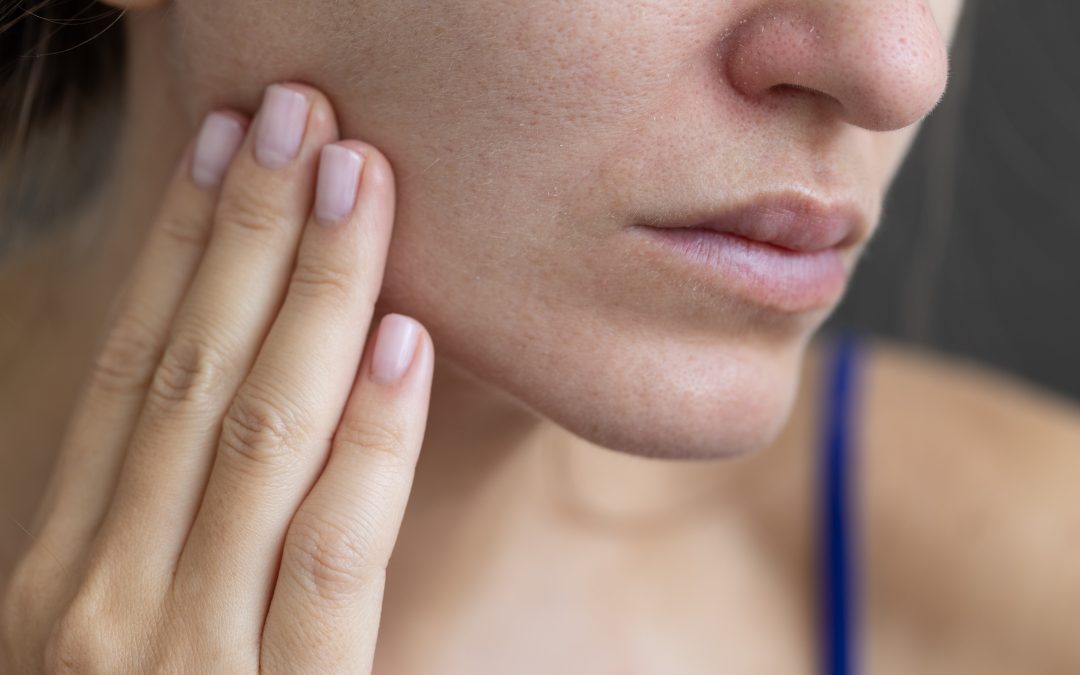
Why Is My Skin Dry and Itchy Right Now?
Winter in South Charlotte is a time for cozy nights in and festive outings. Whether you’re a student hustling between classes at Central Piedmont Harper Campus or a shopper running errands at the Carolina Place Mall, no one has time for the distractions of dry, itchy skin. When your skin feels tight, uncomfortable, and irritated, it’s hard to focus on the joys of the season.
If your dry skin is getting in the way, visit or call AFC Urgent Care South Charlotte today for help. We’re open 7 days a week with extended hours, and you never need an appointment.
The cold weather blues can be as tough on your skin as they are on your mood. As temperatures drop, the air becomes drier, and your skin starts to feel itchy, tight, and uncomfortable. It’s helpful to understand why your skin gets dry when it’s cold and what you can do to keep it hydrated and healthy all season long.
Why Skin Gets Dry When Temperatures Drop
When the weather is cold and dry, the air can’t hold as much moisture, which means there’s less moisture available for your skin. This loss of moisture is the main culprit behind dry winter skin, as it causes the skin to lose its natural oils and become dehydrated. In the South, where we’re used to high humidity in spring and summer, the sudden switch to dry winter conditions can be especially harsh on the skin. The drastic drop in moisture levels can leave your skin feeling raw, cracked, and irritated.
Cold temperatures also play a role in dry skin. When the body is cold, blood vessels constrict to conserve heat. This constriction reduces the flow of natural oils and nutrients to the skin, making it more prone to dryness. Harsh soaps and detergents can strip away the skin’s natural oils, making it more susceptible to dryness. This is especially true in the winter when the skin is already prone to dehydration.
Most Common Spots for Dry Skin
While everyone is different, there are some areas that are highly susceptible to dryness during the winter. Here are some spots to look out for as seasons change and the temperatures drop.
- Elbows – The skin on your elbows is naturally thicker and has fewer oil glands, making it more prone to dryness. To combat this, moisturize your elbows regularly, especially after showering or bathing.
- Hands – Our hands are constantly exposed to the elements, making them particularly vulnerable to dryness in the winter. Harsh soaps and frequent handwashing can strip away the natural oils, leaving your hands feeling rough and cracked. To protect your hands, use a gentle soap and always apply hand cream after washing.
- Knees – Similar to elbows, the skin on your knees is thicker and tends to be drier. Regular moisturization is key to preventing dryness and roughness. Apply a generous amount of moisturizer to your knees after showering or bathing.
- Face – The skin on your face is especially sensitive to environmental changes, and the area around your mouth is particularly susceptible to dryness due to constant exposure to cold air and wind.
- Feet – During the winter months, people tend to wear closed shoes and boots, which can trap sweat within the footwear. This trapped moisture can evaporate, leaving your feet feeling dry and cracked. To prevent this, choose shoes that allow your feet to breathe and apply a thick layer of moisturizer before bedtime.
5 Ways to Prevent Dry Skin
Add moisture to the air with a humidifier
As the air outside gets drier, introducing moisture into your home can be a game-changer for your skin. Humidifiers work by adding moisture to the air, counteracting the dry air that accompanies cold weather. This can significantly improve skin hydration and prevent dryness and irritation.
When selecting a humidifier, choose one that is appropriately sized for your home. An oversized humidifier can make your living space too damp, increasing the risk of mold and mildew growth. A humidifier that’s too small for your space won’t provide enough moisture to keep your skin hydrated. Check the square footage recommendations on the packaging to ensure you’re selecting the right humidifier for your space.
Embrace Lukewarm Showers
Hot water can wreak havoc on your skin’s moisture levels by stripping away the natural oils that act as a protective barrier and help lock in hydration. These natural oils are essential for maintaining healthy skin. When they are removed, your skin becomes susceptible to dryness, irritation, and cracking.
Additionally, hot water can damage keratin cells, the building blocks of the epidermis, the outermost layer of your skin. Keratin cells play a crucial role in preventing water loss and protecting your skin from environmental aggressors. When keratin cells are damaged, they become less effective in retaining moisture, leading to dry, flaky skin.
Instead of hot showers, opt for lukewarm showers to protect your skin’s health this winter. Lukewarm water is gentler on your skin, allowing it to retain its natural oils and maintain its protective barrier. This simple change can make a significant difference in preventing dry skin.
Hydrate your skin with moisturizer
Just like your body craves a refreshing drink on a hot day, your skin needs regular hydration to stay healthy and supple. Moisturizing daily is akin to giving your skin a generous dose of water, replenishing the lost oils and keeping it hydrated and soft.
To maximize the benefits of moisturizing, opt for fragrance-free and non-comedogenic products that won’t clog your pores or irritate your skin. For severely dry skin, ointments and creams are generally more moisturizing than lotions. Look for products enriched with ceramides, hyaluronic acid, and shea butter, as these ingredients are particularly beneficial for dry skin.
The ideal time to moisturize is after a shower or bath when your skin is still slightly damp, making it more receptive to hydration. Apply a generous amount of moisturizer to all areas of your body, paying particular attention to your hands, feet, elbows, and knees, as these areas are more prone to dryness.
Protect your skin when you go outside
When venturing outdoors during the winter, it’s crucial to protect your skin from the harsh elements. Wear gloves to shield your hands from the biting wind and consider using a scarf to protect your face and neck. If possible, wear a hat to protect your ears and scalp from the cold. Additionally, don’t forget to apply sunscreen with an SPF of at least 30 to all exposed skin when you’re outside for long periods, even on cloudy days. While the sun may seem less intense in the winter, its harmful UV rays can still damage your skin.
Maintain a Balanced Diet
A healthy diet is crucial for maintaining skin health and hydration. Incorporate plenty of fruits, vegetables, and whole grains into your meals. These nutrient-rich foods are packed with vitamins, minerals, and antioxidants that your skin needs to stay radiant and protected. And don’t forget to stay hydrated by drinking at least eight glasses of water per day.
Vegetables are a fantastic source of vitamins A, C, and E, all of which play a vital role in maintaining skin health and preventing dryness. Fruits are ideal for hydration, especially those with hight water content. Omega-3 fatty acids, often found in fatty fish like salmon, tuna, and sardines, are another excellent source for maintaining skin elasticity and preventing inflammation.
Winter may bring colder weather and shorter days, but it doesn’t have to bring dryness and discomfort to your skin. By incorporating simple yet effective measures into your daily routine, you can maintain radiant, healthy skin throughout the season.


